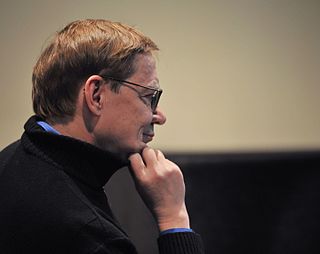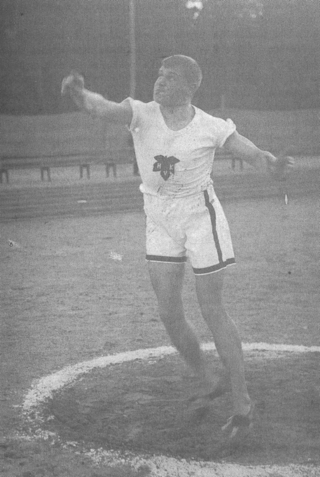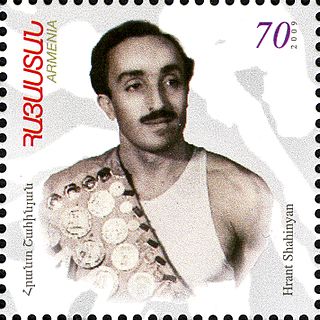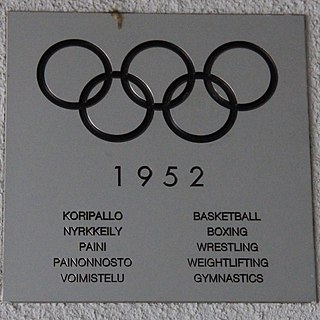Kalevi Laitinen may refer to:
Kalevi Laitinen may refer to:
Biosemiotics is a field of semiotics and biology that studies the prelinguistic meaning-making, biological interpretation processes, production of signs and codes and communication processes in the biological realm.

Kuusankoski is a neighbourhood of city of Kouvola, former industrial town and municipality of Finland, located in the region of Kymenlaakso in the province of Southern Finland. The population of Kuusankoski was 20,392 (2003) and the total area was 129.5 km² of which 114 km² was land and 14.56 km² water. It is located some 130 kilometres (80 mi) northeast of the Finnish capital Helsinki. Kuusankoski is primarily known for paper manufacturing and three large factory complexes. It is sometimes nicknamed the "Paper capital of Finland".
Kaleva or Kalevi may refer to:

Kalevi Ensio Aho is a Finnish composer.

The Finland men's national basketball team represents Finland in international basketball competition. The national team is governed by Basketball Finland.
Parliamentary elections were held in Finland on 2 and 3 January 1972.
Parliamentary elections were held in Finland on 18 and 19 March 1979.

The neuropeptide S receptor (NPSR) is a member of the G-protein coupled receptor superfamily of integral membrane proteins which binds neuropeptide S (NPS). It was formerly an orphan receptor, GPR154, until the discovery of neuropeptide S as the endogenous ligand. Increased expression of this gene in ciliated cells of the respiratory epithelium and in bronchial smooth muscle cells is associated with asthma. This gene is a member of the G protein-coupled receptor 1 family and encodes a plasma membrane protein. Mutations in this gene have also been associated with this disease.
GPCR neuropeptide receptors are G-protein coupled receptors which bind various neuropeptides. Members include:

Johan Valdemar "Juho" Halme was a Finnish track and field athlete who competed in the 1908 and 1912 Summer Olympics and won six Finnish championships in various events in 1907–1916. He died during the Finnish Civil War.
Kalevi may refer to
Kalevi Johannes Laitinen was a Finnish gymnast and Olympic champion.
Veikko Kalevi Laitinen was a Finnish speed skater who competed in the 1948 Winter Olympics and in the 1952 Winter Olympics.
Laitinen is a Finnish surname. Notable people with the surname include:

Kalev Sports Hall is a multi-purpose arena in Estonia. It was built in 1962 and holds up to 1,780 people (all-seater).
Kalevi is a Finnish and Estonian masculine given name and surname. Notable people with the name include:
Nelli Laitinen is a Finnish ice hockey player and member of the Finnish national team. She is signed to play college ice hockey with the Minnesota Golden Gophers women's ice hockey program in the Western Collegiate Hockey Association (WCHA) conference of the NCAA Division I as an incoming freshman for the 2022–23 season.

The men's artistic individual all-around competition at the 1952 Summer Olympics was held at Messuhalli, Exhibition Hall I from 19 to 21 July. It was the eleventh appearance of the event. There were 185 competitors from 29 nations. Each nation entered a team of between five and eight gymnasts or up to three individual gymnasts. The event was won by Viktor Chukarin of the Soviet Union, with his countryman Hrant Shahinyan taking silver. It was the Soviet debut in the event, beginning four decades of dominance rivalled only by Japan and ending only after the dissolution of the Soviet Union; the Soviets would win 6 of the 10 editions from 1952 to 1988, with Japan taking the other 4. Bronze in 1952 went to Josef Stalder of Switzerland ; it was the last medal in the men's all-around for any gymnast not from the Soviet Union or Japan until 1980.

The men's vault competition at the 1952 Summer Olympics was held at Töölö Sports Hall, Exhibition Hall I from 19 to 21 July. It was the eighth appearance of the event. There were 185 competitors from 29 nations, with nations competing in the team event entering up to 8 gymnasts and other nations able to send up to 3. The event was won by Viktor Chukarin of the Soviet Union, the nation's first medal in the event in its first appearance. Japan also earned its first medal(s): a silver and two bronzes, as Masao Takemoto finished second and there was a tie for third between Takashi Ono and Tadao Uesako.
Jägala may refer to: